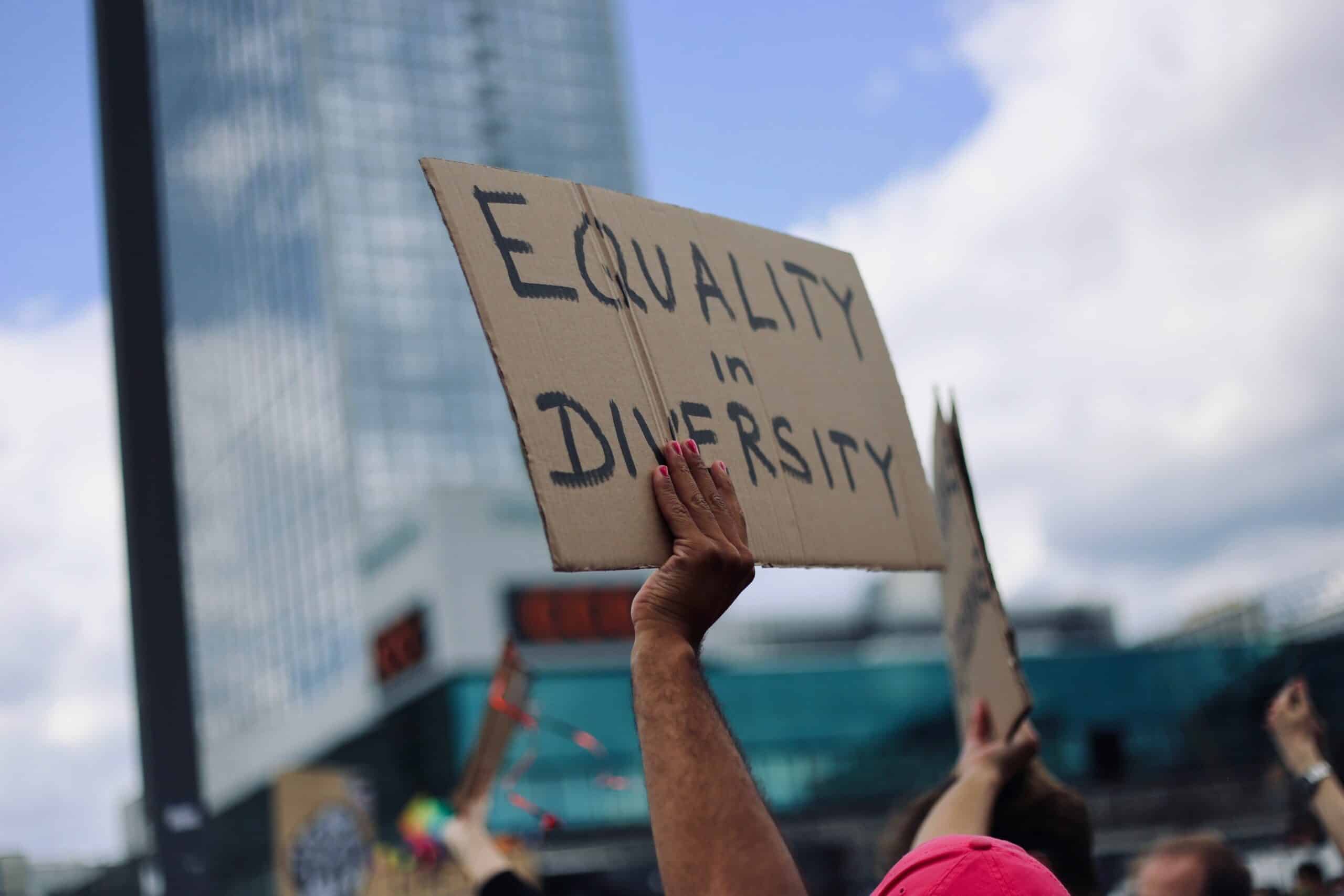Human Resources
HR Trends 2021: Authenticity
11 January 2021

Employees bring their full selves to work and have done more in 2020 than ever before. And they expect their business leaders to do the same. They don’t want to hear empty “talk tracks” anymore. They want to know you have a vision and a plan.
As a result, businesses must shift away from top-down strategies and, instead, harness the voice of the employee in everything they do. During times of uncertainty and undue stress, transparency and honesty are absolutely critical. This is the responsibility of businesses today.
With our MC Joe Sweeney, we brought together 4 HR experts from around Europe, to discuss the big trends for HR and the workplace in 2021. Below, watch them discuss the theme of Connection and its role in HR and the workplace in 2021.
Alexandre Pachulski, author, co-founder and CPO at Talentsoft
Neelie Verlinden, Editor-in-chief of AIHR Digital and Digital Content Manager at Talentsoft
Robindro Ullah, Managing Director at Trendence Institut, HR blogger and Influencer
Debra Corey, Chief ‘Pay it forward’ Officer at Debco HR Limited, Author and Speaker
Video Transcription:
JOE: We’re going to move on to our final trend and as always we’re going to start with a short clip. This trend is authenticity.
[Short extract from the Netflix series: “Emily in Paris”]
JOE: So I know not everyone is a huge fan of the Netflix series Emily in Paris but in that clip we saw a bit of a picture of what inauthenticity can look like. She was forced to jump through hoops just to be able to speak to the boss of Duré cosmetics, forcing her to get on her social media and act the part in order to access that person. So being authentic is really key when it comes to building stronger connections and Debra, you kind of gave us a preview in the last one there on what authenticity is all about, so maybe Alexander you can build on that.
ALEX: Yes as Debra said she has finished the previous trend with this idea that we’ve got to know each other better – better than we do today. Not only about the past experiences, not only about the kind of chit chat we usually practice in companies but about the real ambitions, the real Joe or the real Debra. I’m talking because it wasn’t allowed before…before, when I say before, before what because…before the situation where basically you see your manager in a hoodie at home with his kids, his cat or whatever things that he were not hiding before but not talking about before because in coming at work as soon as you were in the office you had to really wear a suit that was different, you had to pretend once again being strong and all that stuff and suddenly because of the first lockdown we discovered people differently. And those people that were really putting a lot of effort to help hide their intimacy and personal life they understood that it was okay. Nothing happened, they didn’t become weaker. They didn’t even become more vulnerable just because they were more themselves and what this Emily in Paris thing is showing is that yes, Instagram and social media in general – they kind of magnify our life and everything is wonderful all the places where we go are wonderful, but the proof is that the more you are doing that the less you are talking about you, your needs, your fears, your hopes and this is the ground on which we’ve got to build the next decade and 2021 because it’s all about alignment. Being aligned between your personal ambitions and the professional opportunities you will be able to grab. And why this alignment? Alignment is more important than ever because all the efforts all the energy that we are going to have to put to developing new skills, to grab new opportunities, occupy new jobs and face all the problems we are facing right now, will require once again 100 percent of your energy and you’ve got to be aligned and you won’t be able to do all this effort if you’re not genuinely interested in the opportunities. And to finish with technology, AI will be of no use if you don’t tell the truth. AI will say “There is something here for you. There is an opportunity you could grab.” And if you are pretending to be someone else, it could be weird and you could eventually not grab this opportunity just because you pretended to be someone else. So it’s alignment between ambitions and opportunities, but also alignment between what technology is going to push for you and what you will be able to grab. So once again we come back to the transparency thing of Robindro.
JOE: Yeah we are bringing it…all really relates, all these trends relate back on themselves. Debra, I just want to come to you. Could you potentially share an example of an organization that has done well in this, in being able to be authentic and allow people to live their own values at work?
DEBRA: Yeah and I think it’s a really good segue because we were just talking about alignment and it’s so important to align with your culture as Robindro said but also with your company values. And actually right before the pandemic I wrote a book on bringing your values out to play which is all about how companies are living their values. But during the pandemic I decided to interview 24 more companies and so, can I share more than one? Because i don’t want to play favorites. I’ll do really short and sweet but they’re all just lovely, lovely stories. First one I’ll do from the Netherlands in honor of you Neelie. So Tony’s Chocolonely – you know that company and one of their values is ‘makes you smile’ and they did some lovely things in making their employees smile. They did things like they sent them gift boxes and what they did is they got things from local providers to support the local providers and put things in it. They also created something called a wheel of wonder where you could spin it and win prizes for being recognized and appreciated so that’s lovely Zoom! We’re on Zoom i thought I should pick zoom. They’re in my ebook – one of their values is ‘care for our teammates’ and what they did is they had this word called zoomification or something like that – zoomitude! That’s it, zoomitude. And it’s their word for gratitude, so they held this summer camp for their employees children called Camp Zoomitude and three days a week the kids could come online on zoom and have activities, so it was really living that value of taking care of their teammates. And then the last one I wanted to share, with tons of companies…I’m sure many people have done this themselves, where they didn’t just live their values for their employees but also for the community and their customers and they went above and beyond. There’s so many lovely examples of what companies have done to support the community in need. One of them is a company called Twinkle and they have this online education system that normally teachers would use, but when they realized that all of a sudden, during the first lockdown, the parents had to actually teach their children, they lived this value of going above and beyond by absolutely inviting all these new teachers in letting the use the technology for free and then spending hours changing the configuration, because as a parent we don’t know how to teach, so we don’t know how to look for things, so they made it user friendly for these new teachers. So again I think it’s really important to have that, as you say, alignment with your values, your culture and how you’re actually acting in an authentic way.
JOE: Some great examples there. Robindro, I know that your company focuses as well on employer branding. What does all this mean for how organizations should think about their employer branding?
ROBINDRO: I think, to be honest companies will be forced to be authentic in future since the new generations, they are asking for it and they are looking, they are looking at the brands and they want to see authentic brands in terms of leadership, in terms of what kind of values do they have? And if you are not authentic as an employer you will end up in some kind of look-alike contest where all the big brands are. They are all shiny and from a candidate’s perspective they all look alike. Yeah they have no different differentiation and actually we have a good example in Germany which I saw at first this summer. It was a campaign from Porsche. They are the car producing company, they are building sports cars, shiny cars. The brand is very shiny, the product print. And they came up with a campaign called ‘bad day’ – they showing the employees having a bad day because not all the days are the same. They are not all shiny, which might be your impression when you see the product brand, but the employer – it is an authentic employer and not every day is a shiny day, you also have bad days.
ALEX: If I can just add something on what you said Robindro, that’s a wonderful example because during the first lockdown some people tried the ‘weather forecast’ thing when you give your meteo, your weather – is it shiny? Is it cloudy? and most of top management committees, when they were doing that everyone were doing great and it was fabulous and no one were admitting that ‘wow this is a crappy day, it’s terrible’ and it tells a lot about authenticity. So if you want to know if your company is authentic or not you do that in a difficult period and you will very quickly know whether you’re working in an authentic company.
JOE: So in speaking about authenticity, I guess it begs the question – is there a limit to how authentic people should be at work? Neelie, do you have any thoughts on that?
NEELIE: So for me, in an ideal world people would be able to go to work as they are. So, for me, there shouldn’t be a difference in the way people are when they’re working from home right now or the way they are when they step into the office and I think if there’s one good thing that came out of the COVID situation and the fact that so many of us had to work from their homes it’s that we’ve seen people in their personal space and, in a way, it has gotten rid of all kinds of barriers that may have been there before in an office environment. And coming back to what Robindro said earlier about Porsche and their ‘bad days’, I think in an ideal world if I’m having a bad day I should be able to tell my manager I’m having a bad day and perhaps even take the day off without having to take an actual day off for that, if you know what I mean.
JOE: Do you have any thoughts on that Alex?
ALEX: Yeah I totally agree with Neelie actually. It’s kind of a matter of education. It means the limit should be the same in our professional or personal life and it’s all about being respectful, being polite and once again understanding the interest of a team. When you are going on a dinner on a Saturday night and you are in a bad mood you are not going to destroy the atmosphere just because you are in a bad mood. You know that this is not a moment and the moment will be more in a one-to-one with your friend. And that’s the same kind of limit. If you think collectively, you know where the limits are, basically just thanks to our education.


